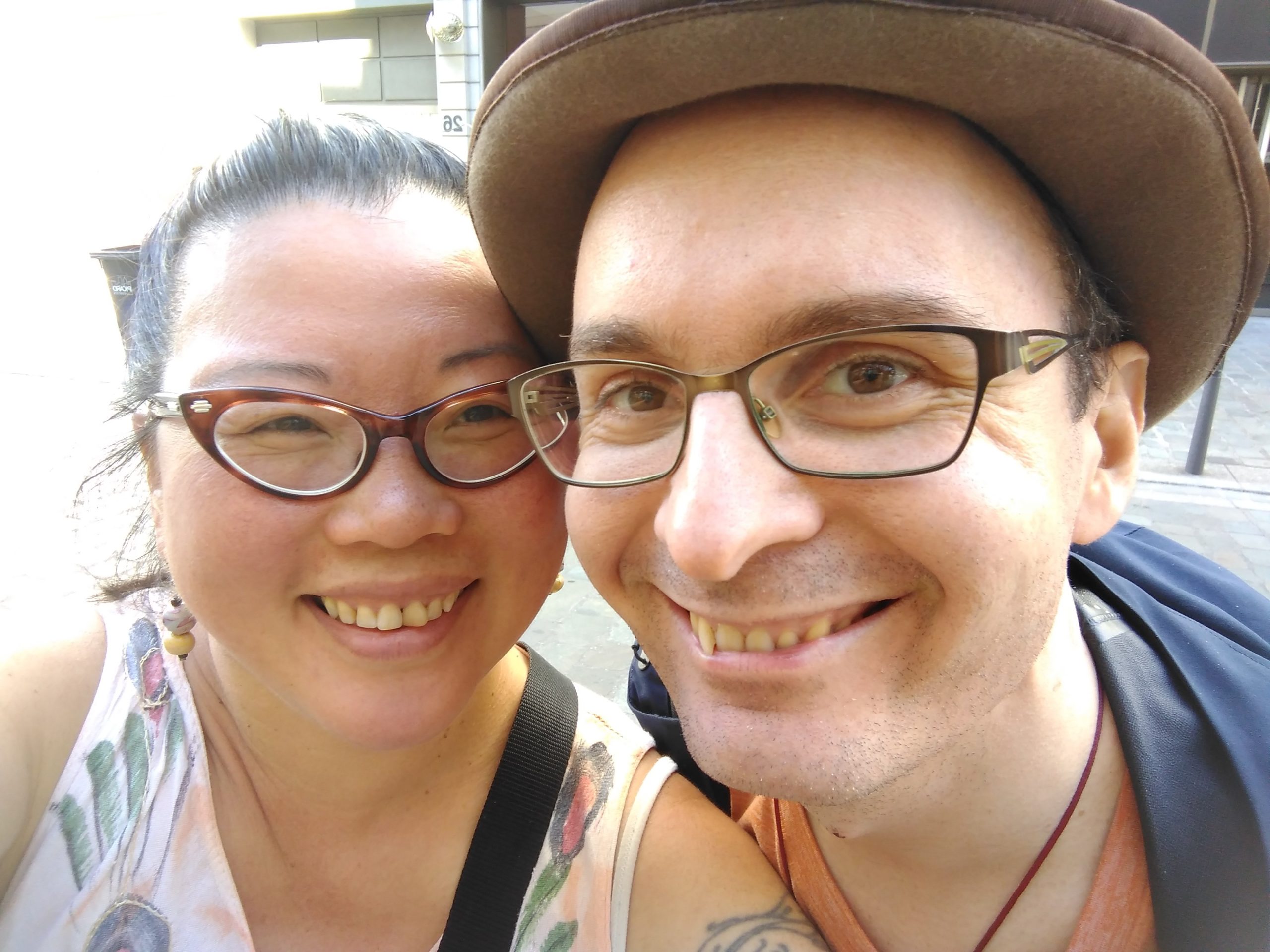A promising year ahead.
With much thought and preparation, we are prioritising our lives to better deal with these uncertain times.
We feel empowered to better the chances of resilience and know-how, collectively and constructively. With physical and mental health training. With better nutrition and sleep. With and for our communities.
We have designated the role of “Lifecaring” as a guiding principle for us to help one another in gaining critical skills to overcome the obstacles we may face.
And we figure, even if nothing dramatic happens, we can always fall back on these acquired skills and be healthier and happier nonetheless.

We are currently assembling a group of interested persons to participate in our proposed program, titled “AURORA” (Actions Unies pour la Résilience et l’Organisation en Réseau Adaptatif, or United Actions for Resilience and Adaptive Network). This program is housed under the health initiative called Régie de Santé Commune at La MYNE, a third place in Villeurbanne, France.
Together, with our partners, we are implementing recurring physical and mental training, and will soon add first aid and mental health first aid training, to complete a full program geared towards these goals.
Here is what we would like to achieve:
- Use our best available resources for a long and healthy life
- Prevent / advert / survive crisis situations
- Not be overwhelmed by life
- Understand and act toward a better world
- Foster each other and a thriving community
- Feel and be empowered to change things
- Try our best to make things happen
Here are the elements that are needed:
Physical Resilience & Health Training
- Physical resilience is a cornerstone of overall well-being and plays a critical role in managing stress and recovering from crises. A Lifecarer must understand the importance of maintaining physical health, particularly in high-stress environments. This training focuses on fostering physical fitness, managing fatigue, and creating sustainable health habits that contribute to both individual and organizational resilience.
- Key skills: Physical fitness, stress management through exercise, nutrition, sleep hygiene, and injury prevention. It also includes understanding how physical health impacts mental performance and stress resilience.
Mental Health & Emotional Resilience Training
- The role of a Lifecarer extends beyond physical infrastructure to also ensure the mental health and emotional well-being of individuals. This training helps in understanding how to support others during stress, trauma, and adversity, both on a personal level and within organizational settings.
- Key skills: Emotional intelligence, psychological first aid, stress management, mental health support, and trauma-informed care.
Stewardship, Leadership & Organizational Resilience Training
- The ability to lead and inspire resilience within teams and organizations is crucial. A Lifecarer must be able to navigate and foster leadership during turbulent times and create a culture of resilience and adaptability.
- Key skills: Leadership under pressure, strategic thinking, team dynamics, decision-making in uncertainty, and resilience-building practices.
Capacity Development & Crisis Management
- A key part of resilience is managing crises effectively. This training focuses on preparing organizations or individuals for potential disruptions, whether from natural disasters, economic crises, health pandemics, or other significant challenges. This also prepares for violent situations.
- Key skills: Risk assessment, business continuity planning, emergency response, crisis communication, violence deescalation techniques, self-defense, security, and disaster recovery.
Diplomacy & Commons Training
- Diplomacy and the concept of the commons (shared resources or collective goods) are increasingly vital for building resilience in organizations and communities, especially when dealing with global challenges like climate change, pandemics, and social inequality. Lifecarers must be skilled in fostering cooperation, navigating complex political and social dynamics, and ensuring equitable access to shared resources. This training emphasizes the need for diplomatic engagement and collective action, while ensuring the sustainable management of common goods and public assets.
- Key skills: Collaborative governance, conflict resolution, negotiation in international and cross-sector settings, understanding of shared resources (such as water, land, and digital infrastructure), and community-based decision-making. It also involves a deep understanding of sustainability principles and the equitable distribution of resources in a way that promotes long-term resilience.
One Health Training
- The One Health approach is a holistic framework that recognizes the interconnectedness of human, animal, and environmental health. It emphasizes the idea that the health of people is closely linked to the health of animals and the environment. For Lifecarers, understanding and implementing One Health principles is essential for building resilience to pandemics, environmental changes, and zoonotic diseases, which often arise from the complex interactions between humans, animals, and ecosystems.
- Key skills: Interdisciplinary collaboration, disease prevention (especially zoonotic diseases), understanding environmental health, and implementing sustainable practices across human, animal, and environmental sectors. This includes integrating public health, veterinary medicine, and environmental science to create solutions that promote the well-being of all life forms.
Doing our best…
Whatever we face, we can be reassured that we’re not waiting for something to happen. That we are proactively empowering ourselves to be more prepared. We are all just doing our best, but in this scenario, it gives just that much more to secure and build a more desirable future together.
More to come.
We will put together more documentation as we go forward and we will update our website accordingly.